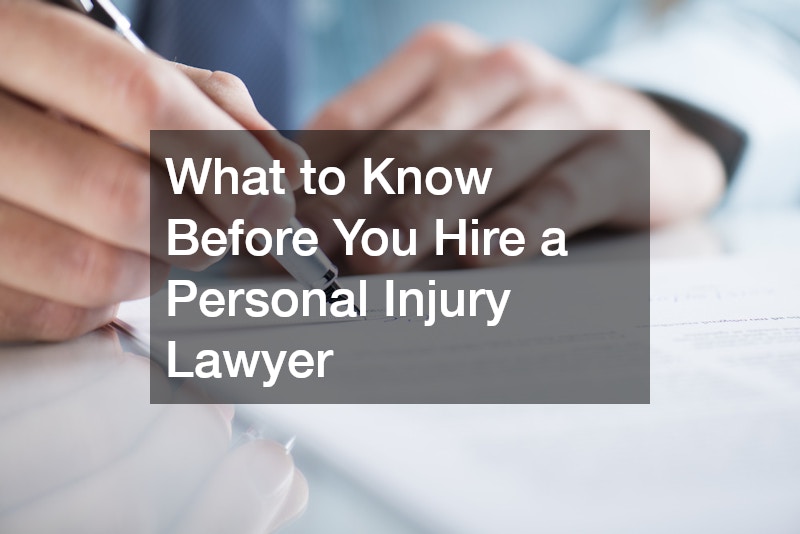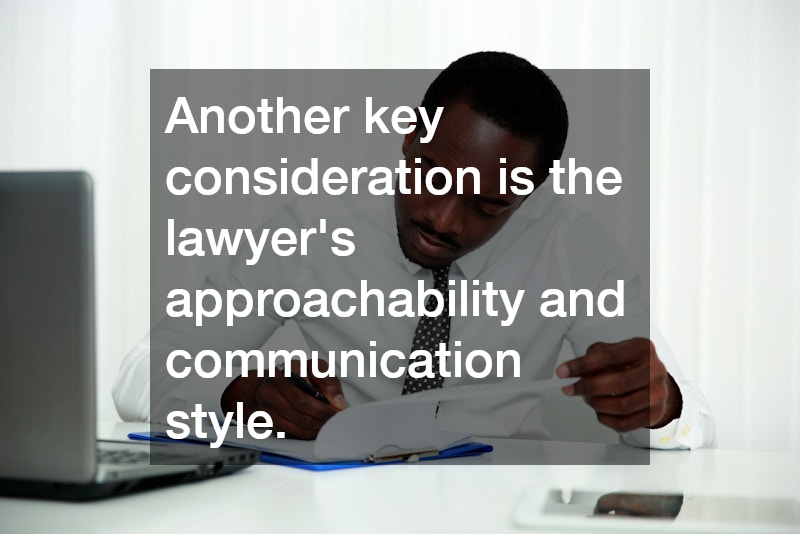

Hiring a personal injury lawyer can be an essential step after you’ve been involved in an accident or have suffered an injury due to someone else’s negligence. Given the complexities of personal injury law, having an expert on your side can make a significant difference in the outcome of your case. This article outlines what you should know before taking that critical step.
Understanding Personal Injury Law
Before hiring a personal injury lawyer, it’s crucial to understand the basics of personal injury law. This area of law covers cases where an individual has suffered harm due to the negligence or intentional act of another party, such as in car accidents, medical malpractice, or slip and fall incidents.
Personal injury lawyers specialize in helping victims obtain compensation for their losses, including medical expenses, lost wages, and pain and suffering. Understanding whether your case falls under personal injury law will help you determine whether you need a lawyer’s assistance. It is also essential to understand that there are statutes of limitations governing how long you have to file a personal injury claim, which varies by state.
Personal injury law can be complex, with different rules applying depending on the nature of the injury and jurisdiction. A qualified personal injury lawyer can help navigate these complexities, ensuring your rights are protected throughout the legal process. It’s crucial to note that not every injury case will require a lawsuit; sometimes, skilled negotiation can lead to a fair settlement without needing to step into a courtroom. However, having a lawyer who can litigate effectively if necessary is vital. Familiarizing yourself with the law will make the process less daunting and help you understand the value a personal injury lawyer brings to your case.
Besides knowing what constitutes a personal injury case, an understanding of the potential outcomes is beneficial. Some cases result in settlements, while others may go to trial. An experienced personal injury lawyer will guide you through this, explaining potential scenarios and outcomes so you can make informed decisions. They can also estimate the compensation you might expect, although this is never guaranteed. Consistent communication with your lawyer can clarify the legal jargon that often seems overwhelming, making the entire process more transparent and less stressful.
Researching Personal Injury Lawyers
Once you’ve decided to hire a personal injury lawyer, the next step is conducting thorough research. Start by seeking recommendations from friends, family, or colleagues who have been through similar experiences. Online reviews and ratings can also provide insights into a lawyer’s competence and client satisfaction. A lawyer’s track record in handling cases similar to yours can indicate their expertise and likelihood of securing a favorable outcome. It’s also advisable to explore the lawyer’s background, including education, years of practice, and any professional affiliations or certifications that indicate specialized expertise.
Another key consideration is the lawyer’s approachability and communication style. During your initial consultation, assess whether the lawyer listens attentively and responds thoroughly to your questions and concerns. A good lawyer-client relationship is built on trust and mutual understanding, so it’s important to select someone who’s not only knowledgeable but also compassionate and communicative. Ask about how the firm handles client communications and what you should expect regarding updates on your case. Timely and clear communication can ease some of the anxiety associated with legal proceedings.
Don’t hesitate to interview multiple lawyers before making a decision. Most personal injury lawyers offer free initial consultations, allowing you to discuss your case and gauge their suitability without financial commitment. These meetings can provide a sense of the lawyer’s personality and whether their litigation approach aligns with your needs. Pay attention to whether they present realistic expectations about your case instead of making promises that sound too good to be true. Remember, thorough research and careful selection can significantly impact the success of your personal injury claim.
Understanding Fee Structures
Understanding how personal injury lawyers charge for their services is a critical consideration before hiring. Most personal injury lawyers operate on a contingency fee basis, meaning their payment is contingent upon winning your case. The typical fee ranges from 25% to 40% of the settlement or judgment amount. This arrangement can be beneficial as it aligns the lawyer’s interests with yours—motivating them to secure the best possible outcome. However, it’s crucial to understand all the conditions involved, such as who covers court costs and other expenses during the trial.
Discuss the fee structure thoroughly during your initial consultation. A transparent lawyer will clearly explain their rates and any potential additional costs, such as expert witness fees or administrative expenses. Understanding these costs upfront will prevent surprises later in the process. Inquire about any additional costs that might arise and whether these are included in the contingency fee or if they are separate. Having a clear agreement in writing helps avoid misconceptions and ensures that both parties have a mutual understanding of the financial aspects of representation.
Keep in mind that you shouldn’t necessarily choose a lawyer based solely on their fees. The cheapest option isn’t always the best, and the costliest doesn’t guarantee success. It’s important to consider the lawyer’s experience, reputation, and your comfort level with them alongside the cost. A good lawyer is upfront about fees and confident in their ability to handle your case effectively. Ultimately, understanding all aspects of fee structures enables you to make an informed decision that aligns with your financial situation and your case’s needs.
Evaluating Communication and Trust
The relationship between you and your personal injury lawyer is fundamental to your case’s success. Trust is a cornerstone of this relationship, underpinning effective communication and collaboration. It’s important to feel comfortable interacting with your lawyer, knowing they have your best interests at heart. Initially, you can gauge this during consultations by how carefully they listen and respond to your queries. A trustworthy lawyer will provide realistic expectations, rather than overly optimistic predictions, regarding the outcome of your case.
Regular communication is essential throughout the legal process. Clarify how frequently you’ll receive updates and through which channels, be it phone calls, emails, or face-to-face meetings. Open and honest communication ensures that you’re informed and engaged every step of the way. Also, assess the lawyer’s responsiveness to your communications. Quick, thorough responses generally indicate a lawyer who is attentive and values your case, which nurtures trust and gives you confidence in their commitment to helping you achieve a favorable result.
Building a strong lawyer-client relationship with trust and communication leads to better case outcomes. The process of navigating personal injury claims can be long and stressful, so having a lawyer who is both competent and personable can alleviate much of the burden. As the case progresses, remember to provide your lawyer with all necessary information and documents promptly, ensuring they have everything needed to advocate effectively on your behalf. Consequently, collaboration and mutual trust prove pivotal to securing the best possible results from your legal pursuit.



